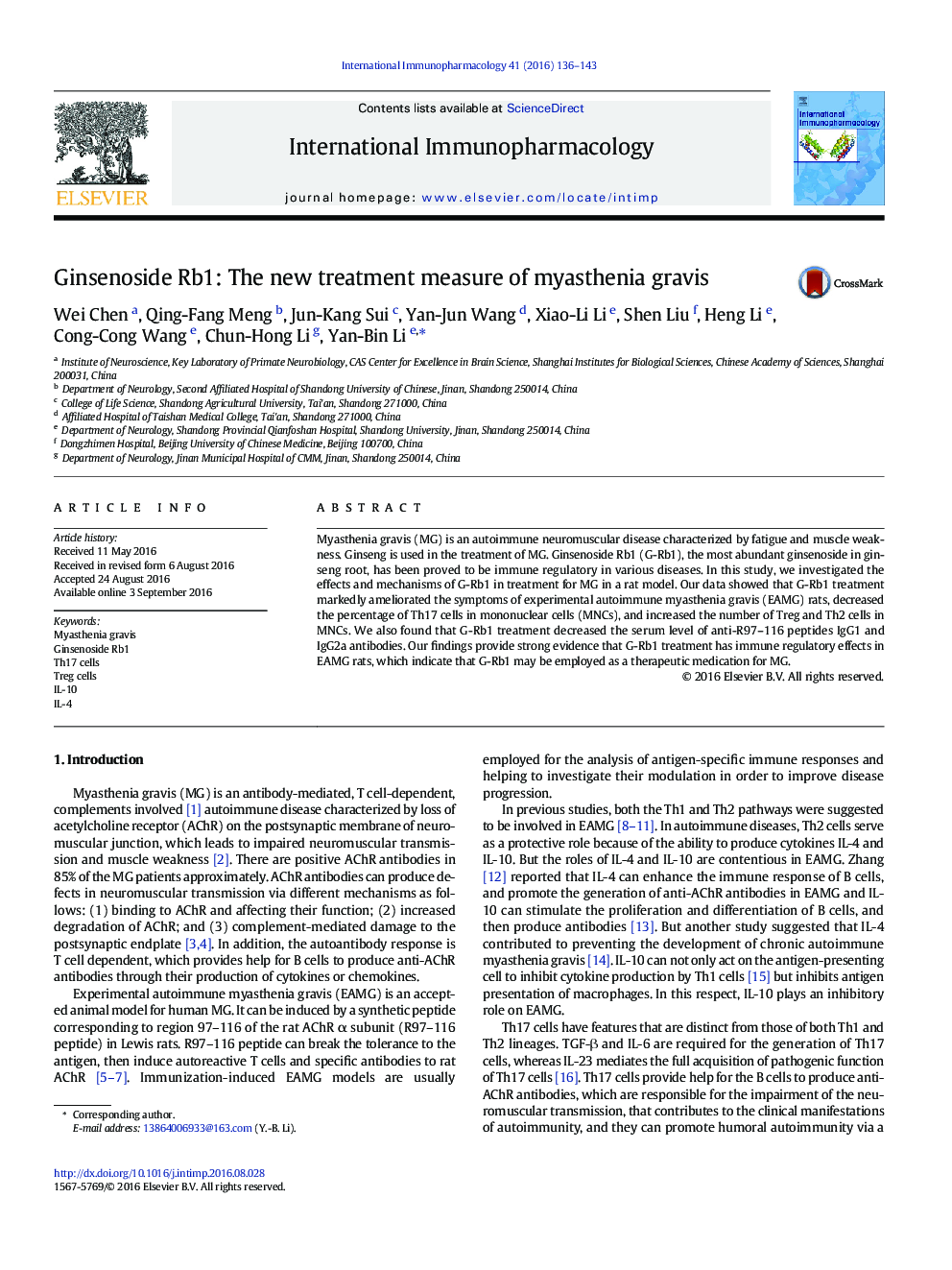| کد مقاله | کد نشریه | سال انتشار | مقاله انگلیسی | نسخه تمام متن |
|---|---|---|---|---|
| 5555353 | 1559749 | 2016 | 8 صفحه PDF | دانلود رایگان |

- Medicine for treating MG often cause serious side effects and an incomplete remission.
- Ginsenoside Rb1 (G-Rb1) has been proved to be immune regulatory in various diseases.
- There are no studies to explore if G-Rb1 has a pharmacological effect on myasthenia gravis (MG).
- We provide the first strong evidence that G-Rb1 treatment has immune regulatory effects in MG rats.
- G-Rb1 may be employed as a therapeutic medication for MG in the future.
Myasthenia gravis (MG) is an autoimmune neuromuscular disease characterized by fatigue and muscle weakness. Ginseng is used in the treatment of MG. Ginsenoside Rb1 (G-Rb1), the most abundant ginsenoside in ginseng root, has been proved to be immune regulatory in various diseases. In this study, we investigated the effects and mechanisms of G-Rb1 in treatment for MG in a rat model. Our data showed that G-Rb1 treatment markedly ameliorated the symptoms of experimental autoimmune myasthenia gravis (EAMG) rats, decreased the percentage of Th17 cells in mononuclear cells (MNCs), and increased the number of Treg and Th2 cells in MNCs. We also found that G-Rb1 treatment decreased the serum level of anti-R97-116 peptides IgG1 and IgG2a antibodies. Our findings provide strong evidence that G-Rb1 treatment has immune regulatory effects in EAMG rats, which indicate that G-Rb1 may be employed as a therapeutic medication for MG.
Journal: International Immunopharmacology - Volume 41, December 2016, Pages 136-143